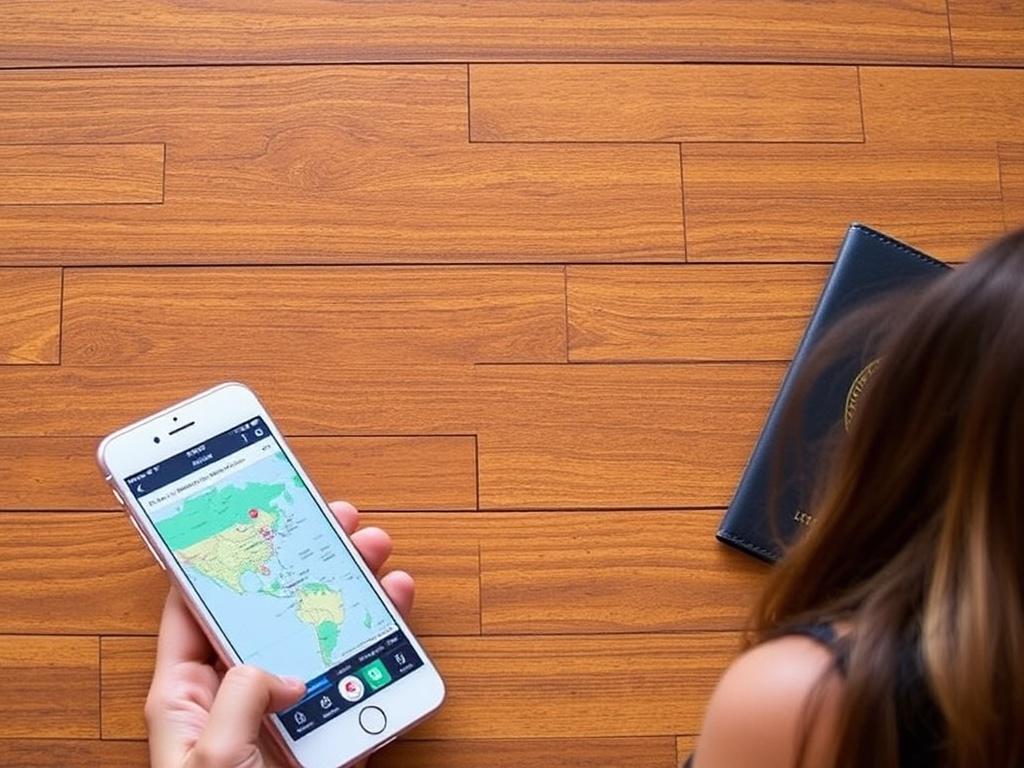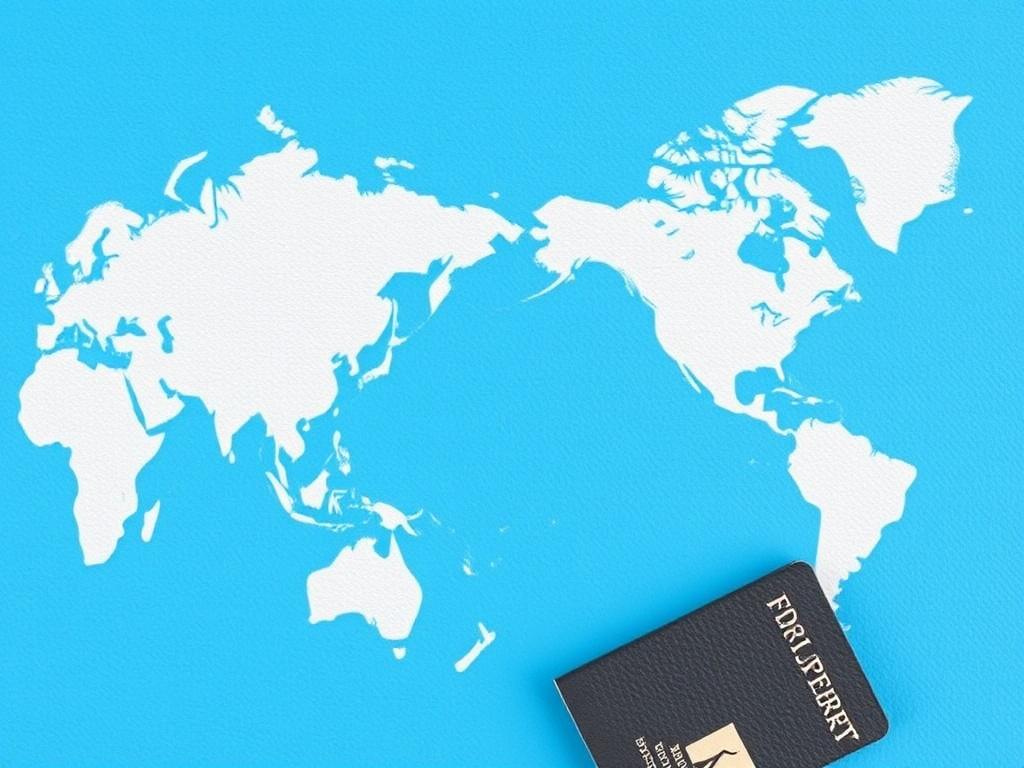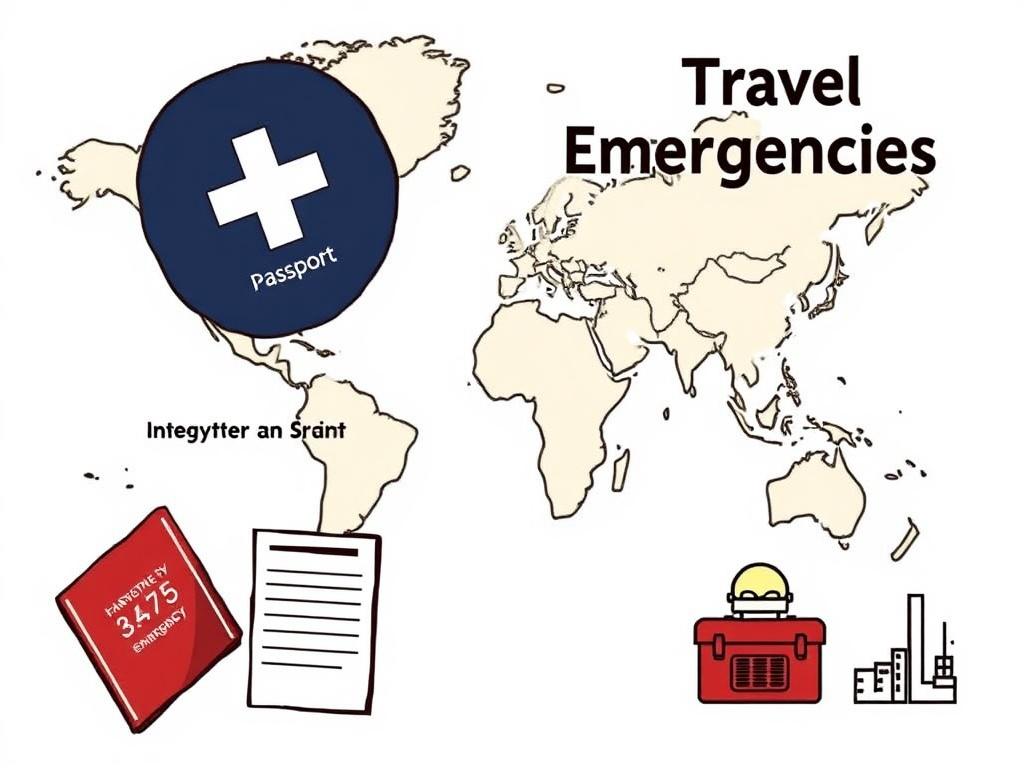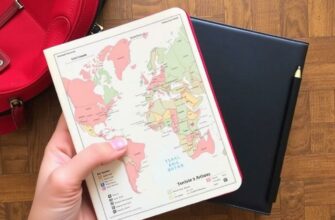Travel can be the most exhilarating, transformative experience—until something goes wrong. From the minor annoyance of a missed connection to the terrifying chaos of a natural disaster, emergencies while traveling test our resourcefulness, patience, and nerves. This guide takes you step by step through the kinds of travel emergencies you might face, practical actions to take in the moment, and planning you can do now to reduce stress later. Whether you’re a casual vacationer, a business traveler, or someone who spends months on the road, these tips will help you respond calmly and effectively.
Why being prepared matters
Travel emergencies are often unpredictable, but preparedness changes everything. Being prepared doesn’t mean you’ll never face a problem; it means you’ll know what to do, who to call, and how to make decisions under pressure. Preparation saves time, money, and, most importantly, reduces anxiety. When you have a plan, you can move from reacting emotionally to acting strategically—whether that means reporting a stolen passport, arranging emergency medical care, or evacuating during a natural disaster.
Preparation also gives you options. A traveler with travel insurance and digital copies of important documents can keep moving. A traveler without them faces delays and legal hurdles. The difference often comes down to a few minutes of planning before you depart.
Common travel emergencies you may encounter
Travel problems come in many shapes and sizes. Knowing the common scenarios makes it easier to anticipate them.
- Lost or stolen passport or ID
- Medical emergencies and injuries
- Natural disasters (earthquakes, hurricanes, floods, wildfires)
- Theft of money, cards, or electronics
- Flight cancellations, missed connections, or airline strikes
- Political unrest or civil disturbances
- Vehicle accidents or breakdowns in remote areas
- Passport/visa issues at border crossings
- Travel with minors, pets, or people with disabilities
Each of these requires a slightly different response, but there are shared principles that will help no matter what the emergency is.
First principles: mindset and immediate actions
When something goes wrong, the first few minutes set the tone. Follow these basic steps:
- Pause and breathe. Panic clouds judgment; a few deep breaths restore clarity.
- Assess safety. Is anyone injured? Are you in immediate danger? If so, prioritize getting to a safe location or calling emergency services.
- Document what happened. Take photos, note times and locations, and keep receipts—these details help later with reports and insurance claims.
- Contact local emergency services if needed. Know the local emergency number or ask hotel staff for help.
- Reach out to your contacts: local hosts, tour operators, family, and your travel insurer.
This approach applies whether you’ve lost your passport in a café or you’re evacuating after an earthquake. The specifics differ, but safety, calm, and documentation always matter.
Lost or stolen passport: immediate steps
A missing passport is one of the most terrifying travel mishaps, but embassies and consulates handle these situations routinely. Here’s exactly what to do if your passport is lost or stolen.
Immediate actions
- Report the theft or loss to local police. Obtain a police report—many embassies require this for emergency travel documents or replacement passports.
- Contact your country’s nearest embassy or consulate. Check their website for emergency passport procedures and office hours. Many have dedicated emergency lines for lost or stolen passports.
- Gather identification and proof of citizenship. If you have a photocopy or digital image of your passport, bring it. Other helpful documents include a driver’s license, national ID, and birth certificate.
- Make a list of the events immediately before the loss. This may help police trace your passport if it was stolen.
Getting an emergency travel document or replacement passport
Embassies can usually issue an emergency travel document (ETD) or a temporary passport to get you home or to your next destination. Permanent replacements take longer and may require more documents and in-person visits.
- Emergency travel document: Quick, limited validity, usually issued to allow you to return home. You’ll still need a replacement later.
- Temporary passport: Often valid for a longer period than an ETD; may allow travel to multiple countries depending on visa rules.
- Full replacement passport: Requires a full application and takes longer. You may need to return home for this, or your consulate may mail it to you.
Bring passport photos if possible, or be prepared to have them taken locally. Expect fees and processing times; keep receipts for insurance claims.
Prevention: shared copies and digital backups
Prevention is simple but effective. Before you leave, make several copies of your passport and store them in separate locations:
- One physical photocopy in your luggage, not with your passport.
- One digital copy in cloud storage (e.g., Google Drive, iCloud, Dropbox) accessible with secure credentials.
- One encrypted copy on a travel USB or an app designed for secure document storage.
Also give a trusted family member a copy they can email you or provide to an embassy if needed.
Medical emergencies: staying healthy on the road
Medical emergencies are frightening, especially if you’re in a foreign country with different healthcare systems. Planning and quick thinking will make all the difference.
Before you travel: medical prep
- Make a medical kit with prescription meds, a basic first-aid kit, and any specialty items (e.g., EpiPen). Pack extra prescriptions in case of delays.
- Get recommended vaccinations and bring documentation of immunizations when necessary.
- Buy comprehensive travel medical insurance that includes evacuation and repatriation. Check the policy’s limits and exclusions carefully.
- Carry a medical summary: chronic conditions, medications, allergies, dosages, and emergency contacts. Translate it into the local language if helpful.
When a medical emergency happens
- Call local emergency services immediately if there’s a life-threatening condition. Know the local emergency number before you travel.
- If it’s urgent but not life-threatening, ask hotel staff, locals, or your travel insurer for recommended clinics or hospitals.
- Use telemedicine resources if available—many insurers and travel apps provide virtual consultations that can triage your situation quickly.
- Keep all medical bills, prescriptions, and doctor’s notes for insurance claims.
If you need evacuation due to serious injury or illness, your travel insurer usually coordinates this. Don’t assume you can handle a complex evacuation yourself; specialized transfers (air ambulances) can be extremely expensive without insurance.
Natural disasters and mass emergencies
Facing a storm, flood, earthquake, or wildfire while traveling can be overwhelming. Planning, staying informed, and following local guidance will often be the difference between safety and harm.
Before travel: research and registrations
- Check destination-specific travel advisories from reliable sources (your government’s travel advisory, local weather services, and international organizations).
- Register with your embassy’s traveler notification system (for example, STEP for U.S. citizens) so your government knows you’re in the area.
- Download alerts for weather, seismic activity, and local news. Have offline maps saved in case cellular service fails.
During a natural disaster
- Follow local authority instructions immediately. They know the safest routes and emergency shelters.
- Move to higher ground during floods, interior rooms during tornadoes, and designated evacuation centers during hurricanes.
- Pack a grab-and-go bag with essentials: water, snacks, medications, copies of documents, phone charger, and a flashlight.
- Keep communications minimal to preserve battery life—texting often gets through when calls do not.
Aftermath and recovery
Even after the immediate crisis, there are steps to protect yourself:
- Document damage to property and belongings for insurance claims.
- Contact your insurer and your embassy or consulate to report your situation and request assistance if necessary.
- Be wary of scams and price gouging when resources are scarce.
Theft and lost belongings: practical recovery steps
Theft is unfortunately common in tourist areas. The key is rapid containment and replacement.
Step-by-step response to theft
- Move to a safe location and call local police to file a report. This report is essential for insurance claims and replacing official documents.
- Cancel stolen credit or debit cards immediately using your bank’s emergency line. Many banks have international numbers for lost cards.
- Contact your phone carrier to suspend service or use remote device tracking to locate or wipe your phone.
- Report stolen electronics to local police and your travel insurer. Provide serial numbers if known.
- Use emergency cash services from your bank, family, or travel insurance if you need funds quickly.
Prevention tips
- Carry minimal valuables and use anti-theft gear like money belts or slash-proof bags.
- Spread cash and cards across different locations (wallet, luggage, hotel safe) so a single theft doesn’t ruin your trip.
- Maintain an inventory of serial numbers and copies of important documents.
Flight interruptions and travel logistics
Flight cancellations, delays, and missed connections are among the most common and annoying travel emergencies. They require both patience and knowledge of your rights.
Before flights: precautions
- Arrive early and monitor flight status via the airline app or third-party services.
- Buy travel insurance that covers missed connections and trip delays.
- If traveling to multiple countries, build buffer time between connections to account for delays.
When flights are canceled or you miss a connection
- Contact the airline immediately—at the counter, by phone, or via their app. They can sometimes rebook you on the next available flight without extra cost.
- If the airline cancels due to its fault, you may be entitled to meals, accommodation, and compensation depending on local laws (for example, EU Regulation 261/2004). Ask about your rights politely but firmly.
- Keep receipts for any out-of-pocket expenses related to the disruption for insurance reimbursement.
Emergency communications and contact lists
When systems fail or you can’t access the internet, having the right contacts and prewritten messages saves time.
Essential contacts to compile
- Local emergency numbers and embassy/consulate contact
- Travel insurer emergency line
- Your bank’s international number
- Local taxi or trusted transport company
- Hotel contact and local host or tour operator
- Family and designated emergency contact back home
Include these contacts both digitally and on paper. Store numbers in your phone and in a physical travel wallet.
Prewritten messages and templates
Having short templates to send family or authorities will help you communicate clearly. Examples:
- To family: “I’m safe. [Brief description of location/situation]. Filing a report/at the hospital/with the embassy. Will update in [hours].”
- To insurer: “Policy [number], traveler [name], location [city/country]. Incident: [lost passport/theft/medical]. Requesting emergency assistance for [brief].”
- To embassy: “Citizen [name], passport number [if available]. Lost/stolen in [place] on [date]. Police report attached. Requesting emergency travel document.”
Insurance: choosing and claiming
Insurance is a safety net, but not all policies are equal. Choose wisely and read the fine print.
Types of useful coverage
- Medical evacuation and emergency medical coverage
- Trip cancellation and interruption
- Baggage loss and theft
- Travel delay coverage
- 24/7 assistance and concierge services
Filing claims efficiently
- Notify the insurer as soon as possible; many policies require prompt reporting.
- Keep documentation: police reports, medical reports, receipts, and airline notices.
- Follow the insurer’s instructions for filing claims and providing evidence. Save all correspondence.
Dealing with legal and border issues
Border mishaps—visa issues, overstays, or paperwork problems—can become legal emergencies.
Common scenarios and actions
- Overstays: Contact local immigration and seek legal advice. Be proactive; voluntary reporting is often better than waiting for enforcement.
- Visa denials at the border: Respect the process. If refused entry, the airline usually returns you home; contact your embassy for guidance.
- Traffic accidents or arrests: Request legal assistance immediately and use your embassy for consular guidance.
Know your rights and responsibilities
Local laws differ widely. Ignorance is rarely an excuse. Before you travel, understand visa rules, customs restrictions, and local laws related to behavior, alcohol, and drugs. If you get into legal trouble, consular services can often provide a list of local lawyers and help ensure fair treatment, but they cannot get you out of jail or provide legal representation.
Special situations: traveling with children, elderly, or pets
Emergencies become more complex when you’re responsible for others. Extra planning is essential.
Traveling with children
- Carry documents proving parentage or guardianship—this is critical at borders.
- Pack a child-specific first-aid kit and keep pediatrician contact info handy.
- Have consent letters if traveling with one parent or a group; some countries strictly enforce this.
Traveling with elderly or disabled travelers
- Plan medical support and accessibility in advance. Notify airlines and hotels of special needs.
- Ensure medication supply and have emergency contacts for local caregivers or clinics.
- Carry a medical letter detailing conditions and necessary treatments, ideally translated into the local language.
Traveling with pets
- Carry health certificates, vaccination records, and microchip information.
- Know quarantine rules for entry and return—some countries have strict requirements.
- Locate local veterinarians in advance and have a plan for pet evacuation if needed.
Evacuation: how and when to decide
Evacuation is a serious decision that often depends on evolving information. Consider these factors.
When to evacuate
- Local authorities order mandatory evacuation
- Your access to essentials (food, water, medical care) is cut off
- Your personal safety is at immediate risk
How to plan an evacuation
- Identify potential exit routes and transport options in advance.
- Keep travel documents and a go-bag ready with cash, medications, and chargers.
- Coordinate with your embassy, insurer, and local contacts for assistance and transport details.
Useful apps and tools to have

Certain apps and online services can make emergencies more manageable.
| Category | Recommended Uses | Examples |
|---|---|---|
| Emergency alerts | Local weather and government warnings | Official government apps, AccuWeather |
| Document storage | Securely store copies of passports and insurance | Google Drive, Dropbox, encrypted vault apps |
| Medical | Telemedicine and local clinic locators | Teladoc, local telehealth providers |
| Navigation | Offline maps and evacuation routes | Google Maps offline, Maps.me |
| Finance | Emergency funds transfers and card freezing | Wise, Revolut, bank apps |
| Communication | Keep family updated with minimal data | WhatsApp, Signal, SMS gateways |
Sample emergency checklist
Below is a compact checklist you can adapt and print before traveling.
- Copies: Passport photocopies, digital backups, visas
- Insurance: Policy numbers, emergency phone, medical evacuation info
- Contacts: Embassy/consulate, local emergency numbers, family contacts
- Money: Local currency, emergency cash, backup credit card
- Medications: Prescription labels, extra supply
- Tech: Portable charger, offline maps, device tracking enabled
- Safety gear: Basic first-aid, whistle, flashlight
- Documents: Police report, hospital receipts, incident photos
How to stay calm and resilient

Handling emergencies is as much psychological as it is logistical. Here are ways to maintain composure:
- Create a mental checklist to focus on tasks rather than fear.
- Use breathing and grounding techniques to reduce panic: box breathing or counting backward.
- Divide tasks among travel companions so no one person feels overwhelmed.
- Set short-term goals: report the incident, then call insurance, then find accommodation. One step at a time.
- Accept help. Locals, hotel staff, and fellow travelers often help—and accepting assistance can speed recovery.
Practical scenarios and how to handle them
Scenario 1: Your passport is stolen in a busy market
You notice your passport is missing in a crowded bazaar. Step one: move to a safe, public area. Step two: have someone call the local police or go with you to the nearest station and file a theft report. Next, contact your embassy; they will advise whether you can get an emergency travel document locally and what documents or photos they need. Notify your bank if any other cards were stolen and cancel them. Use cloud copies of your passport and a photocopy to speed up the embassy process.
Scenario 2: You experience sudden severe chest pain
Don’t wait. Call local emergency services or ask a passerby to call. If language is a barrier, use translation apps and show your medical summary card. If you have travel medical insurance, call their emergency number en route or from the ER. Save all medical notes and test results for the insurer and for your home physician.
Scenario 3: An earthquake hits while you’re at a hotel
Drop, cover, and hold on if it’s happening. After tremors subside, follow hotel staff instructions and proceed to open spaces or designated evacuation areas. Keep an eye out for aftershocks. Use your offline maps and saved local embassy contact to decide if you should move to another city or return home. Document damage and keep a list of hotel charges if you’re displaced.
Scenario 4: Your flight is canceled due to a strike
Be patient but persistent at the airline counter. Ask for rebooking options and whether overnight accommodation, meals, or compensation are available. If the airline cannot help, make bookings with other carriers if possible and save receipts for reimbursement or insurance claims. Contact your trip insurer for assistance with rebooking or emergency expenses.
Post-emergency: recovery and reflection
After you handle the immediate needs, take time to recover and learn from the experience.
- File any insurance claims with full documentation and follow up regularly.
- Report identity theft risks if documents were stolen—monitor credit and accounts.
- Seek post-trip medical follow-ups for injuries or infections.
- Reflect on what worked and what didn’t; update your emergency plan and packing list for future trips.
Lessons many travelers wish they’d learned earlier
Travelers often say the same things in hindsight: carry photocopies, buy good insurance, know where your embassy is, register travel plans, keep emergency cash hidden, and backup documents digitally. These small actions cut through a lot of future uncertainty.
Resources and links to check before you go
Create a short resource file before departure:
- Government travel advisories for the destination
- Embassy/consulate locations and emergency numbers
- Travel insurance contact and policy specifics
- Local emergency numbers (police, ambulance, fire)
- Medical facilities and hospitals near your accommodation
Having this unlocked on your phone and printed helps when networks or power fail.
Final practical tips: what to pack and what to leave at home
- Pack: photocopies of important documents, a small emergency cash stash, basic first-aid, phone charger and battery pack, and a compact multi-tool if allowed.
- Leave at home: unnecessary original copies of documents you don’t need, flashy jewelry that invites theft, and anything that increases your baggage burden without clear purpose.
Small, thoughtful packs are easier to recover if you need to evacuate quickly.
One-page emergency template you can print

| Item | Details |
|---|---|
| Home emergency contact | Name, relation, phone, email |
| Embassy/consulate | Phone, address, hours |
| Travel insurer | Policy number, emergency hotline |
| Local emergency numbers | Police, fire, ambulance |
| Allergies/medical conditions | Short list with medications |
| Backup meeting point | Designated place to meet companions after an emergency |
Conclusion
Being ready for travel emergencies means thinking ahead, making copies of important documents, buying the right insurance, knowing who to call, and keeping a calm, step-by-step approach when the unexpected happens. From lost passports to natural disasters, small preparations create options and reduce panic. Use checklists, store digital backups, register with your embassy, and practice a few emergency steps in advance. Travel will always have uncertainties, but with the right plan you can handle them—and keep your journey on track.









